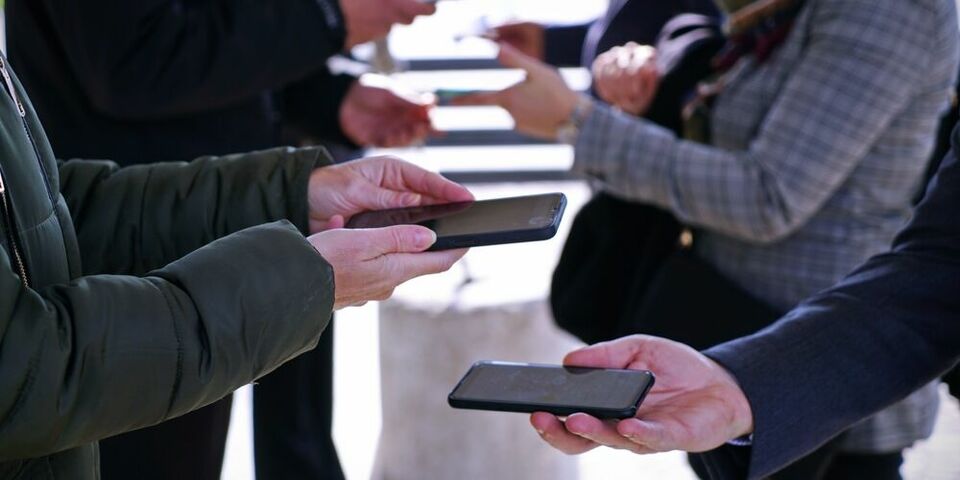The House of Representatives drew up a long list of written questions about the possible introduction of mandatory Covid passes in secondary vocational and higher education. The government was quick to answer those questions, notably by making all the answers roughly the same.
The government regards the introduction of Covid passes in higher education as a step not to be taken lightly, Minister of Health Hugo de Jonge assured the House. In his written answers the expression ‘last resort’ appears more than fifty times.
Moreover, the House of Representatives can – after the proposed legal amendment – still intervene, because the government will submit the introduction to the Members first. Parliament has “a de facto right of veto”, underlines De Jonge.
Fully online
Following the legal amendment, participation councils at the educational institutions will no longer be entitled to have their say on the Covid pass. The government considers this a better option because it will speed up the introduction. The government wants to avoid “having to go back to a situation in which students are once again reliant solely on online teaching”.
Naturally many questions were raised about the necessity of bypassing participation councils. The SP, for example, wanted to know why it is not possible to wait a few days for the participation councils. The answer: the decision on the introduction will be taken by the government, not by the Executive Board, so the participation council is not involved.
The PVV and JA21 take the view that the government is thereby undermining the participation council, but De Jonge does not regard it as a problem. “The fact that the participation council has no formal role does not mean that there will be no opportunity to discuss the method of implementing the government measures at the institution.”
Wiggle room
D66 thought it could find wiggle room in the latter statement. That party is normally strongly in favour of the participation councils but on this point it apparently does not want a direct confrontation with the government. The party asked whether the educational institutions still have room for their own policy. In that case, they could make their own decisions about which classes to give face-to-face and which to give online, even if Covid passes are made mandatory. The implicit message was that the participation councils could have their say on that matter.
There is some truth in that, according to De Jonge’s answers. The educational institutions will be obliged to use the Covid pass (except in the case of exams, vulnerable students and specific practical training). But they could indeed choose how to give the classes. That can be done online too.
“However, face-to-face teaching is very important for the development and wellbeing of students”, De Jonge writes. “So the vast majority of curricula include a considerable face-to-face component. The guiding principle is that institutions make an effort to shape the education as they would do under normal circumstances.”
In practice it will not be easy to check the Covid passes, the educational institutions warned once again last week. They suggest carrying out checks on a random basis, so you do not have to check all the students every time. The government is unwilling to anticipate that situation.
Elderly people
A problem for the bill is that the advisors of the OMT have expressed scepticism over the benefit of and need for the Covid pass. It is “not a measure for preventing the virus from spreading and for combatting an epidemic”, as De Jonge himself says. And the pass is less useful among youngsters than among the elderly.
But the government draws the conclusion that the Covid pass can nevertheless slow down the spread of the virus. The government wants to have an “extensive toolbox” to combat the spread of the virus.
Few coronavirus hot spots have occurred in higher education. GroenLinks wanted to know how many infections and hospital admissions the government expected to prevent with a Covid pass.
The government’s answer is that it is impossible to say, because a variety of measures are always taken simultaneously. “Individual parts can never be calculated, as the OMT has stated repeatedly”, according to the government. “In addition, contextual factors such as vaccination rate, seasonal effects and mutations play a significant role in the effectiveness of measures.”
Distinction
The SGP asked a question about the risk of making a distinction between vaccinated and unvaccinated students. The fear of a visible distinction is understandable, was the answer, “but the government’s view is that the risk is slight”. The explanation: students can get tested if they do not want to get vaccinated.
The question now is whether the House of Representatives is satisfied with the answers. That will become evident during the debate, which has not yet been scheduled.
Another government bill is to be deferred until after the Christmas holidays. In that bill the government plans for some sectors (not including education) to switch to 2G instead of 3G. You would then be able to gain access only if you are vaccinated or cured, while ‘tested’ would no longer apply. There is unlikely to be a majority for that.


Discussion